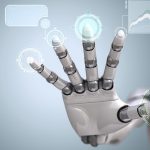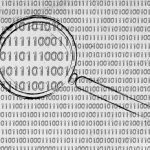It has been said that this new wave of exponential technologies will threaten a lot of jobs, both blue and white-collar ones. But if from one hand many roles will disappear, from the other hand in the very short-term we are observing new people coming out from the crowd to lead this revolution and set the pace. These are the people who really understand both the technicalities … [Read more...] about The New CxO Gang: Data, AI, and Robotics
Big Data
Learn everything you need to know about big data. Find out how companies are using this revolutionary technology and what it means for your business strategy.
How Wearables Could Revolutionize Healthcare Through Big Data
In my last article on healthcare, I talked about the potential for blockchain and big data to save lives. Wearables are another part of the growing relationship between big data and healthcare. Not long ago, my attitude was who gives a f#@% about the Fitbit? Consider that attitude changed. The Fitbit and other health-conscious wearables present the chance for the medical … [Read more...] about How Wearables Could Revolutionize Healthcare Through Big Data
Apache Flink: The Next Distributed Data Processing Revolution?
Disclaimer: The results are valid only in the case when network attached storage is used in the computing cluster. The amount of data is growing significantly over the past few years. It is not feasible for only one machine to process large amounts of data. Therefore, the need of distributed data processing frameworks is growing. It all started back in 2011 when the first … [Read more...] about Apache Flink: The Next Distributed Data Processing Revolution?
How Trading Companies are Leveraging Behavioral Analytics to Win Conversions and Retention
In the dynamic trading industry that relies so heavily on trader conversions and retention, traders need to understand what drives customers toward achieving their goals. In order to understand this, traders need to be able to analyze not just digital analytics, but digital behavior over time. When thinking of analytics, it's not simply Google Analytics. Google analytics is … [Read more...] about How Trading Companies are Leveraging Behavioral Analytics to Win Conversions and Retention
7 Unusual Uses of Big Data
Within the last decade, we've seen companies in every industry leverage big data to become more efficient, save money, and connect with customers. However, the most common uses of big data aren't the only exciting developments in the field ”the massive potential of big data lies in its diverse applications. There are so many opportunities for the technology to improve our lives … [Read more...] about 7 Unusual Uses of Big Data
What is big data?
Big data is a term that refers to the massive amount of digital data created and shared every day. Big data can transform how we live, work, and communicate. It can be used to improve everything from public health and urban planning to business and marketing.
Big data is also changing the way we think about privacy and security. The volume, velocity, and variety of big data present challenges and opportunities for organizations and individuals. Regardless, big data is here to stay, and its impact will only continue to grow in the years to come.
What is big data analytics?
Big data analytics is the process of turning large, complex data sets into actionable insights. Businesses use various analytical tools and techniques, including machine learning and statistical analysis, to do this.
Big data analytics can be used to improve decision-making in areas like marketing, operations, and customer service. It can also be used to identify new business opportunities and optimize existing processes. With the help of big data analysis, businesses can gain a competitive edge by using their data better.
Want to learn more about big data? Datafloq has courses available. Contact us to get started.
When was big data introduced?
The term big data was coined in the 1990s, with some giving credit to John Mashey for popularizing the term. However, the concept of big data has been around for much longer.
Where does big data come from?
In the early days of computing, scientists and businesses began to realize that the amount of data being generated was increasing exponentially. As a result, they began to develop new methods for storing and processing data.
Over time, these methods have become increasingly sophisticated and have played a key role in enabling businesses to make sense of vast amounts of information. Today, big data is used in various industries, from retail to healthcare, and its importance is only likely to grow in the years to come.
What are examples of big data?
One of the most common examples of big data is social media data. With over 2 billion active users, Facebook generates a huge amount of data every day. This includes information on user interactions, posts, and even location data. Analyzing this data can help companies better understand their customers and target their marketing efforts.
Another example of big data is GPS signals. These signals are constantly being generated by devices like cell phones and fitness trackers. When combined with other data sets, GPS signals can be used to provide insights into everything from traffic patterns to human behavior. Finally, weather patterns are another type of big data set. By tracking these patterns over time, scientists can better understand the impact of climate change and develop strategies for mitigating its effects.
How do companies use big data?
Companies use big data in marketing, product development, and customer service. By analyzing large data sets, businesses can identify patterns and trends that would be otherwise difficult to spot. For example, a company might use big data to track customer behavior patterns to improve its marketing efforts.
Alternatively, a company might use big data to improve its products by identifying areas where customers are most likely to experience problems. For instance, big data can be used to improve customer service by finding pain points in the customer journey. Ultimately, big data provides companies with a valuable tool for gaining insights into their business operations.






